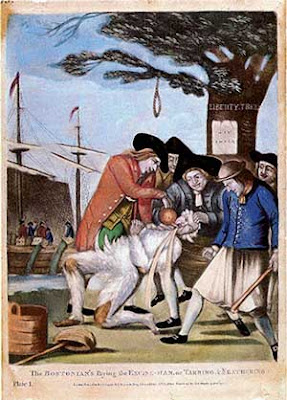The second continental Congress

On May 10, 1775, the members of the Second Continental Congress met at the State House. There were new people like: John Hancoc, Thomas Jefferson, and and Benjamin Franklin.
The Second Continental Congress meeting started with the battle of Lexington and Concord. The New England militia were still encamped outside of Boston trying to drive the British out of Boston. The Second Continental Congress established the militia as the Continental Army to represent the thirteen states. They also elected George Washington as Commander in Chief of the Continental Army.


























Recent Comments